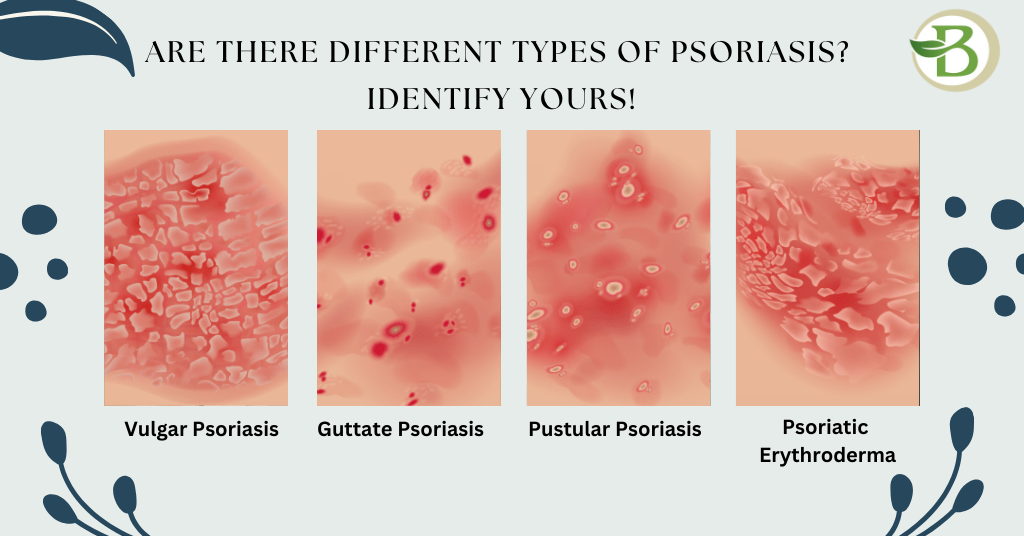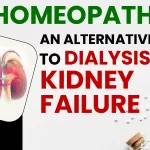What is Psoriasis skin disorder?
Psoriasis has a complex aetiology that includes environmental and genetic factors. A family history may usually, but not always, be a significant cause. A child’s chance of developing this skin condition is around 14% if one parent has the condition. If the condition affects both parents, the percentage rises to 41%.
Despite its superficial appearance, psoriasis is a complex immune system illness. It can cause skin cells to divide up to ten times more rapidly than usual, resulting in painful and itchy plaques that can appear anywhere on the body. According to Dr Mahima, a homeopathic physician at Bharat Homeopathy, these lesions can have far-reaching psychological implications, affecting people’s clothing choices and how often they leave home.
Psoriasis is a severe, noncommunicable, and persistent illness. Although it can happen at any age, it is most prevalent in the 50 to 69 age range. Autoimmune and genetic predisposition are believed to be the main contributing factors. Triggers for the disease can also include trauma, infections in the throat, sunburns, medications, stress, etc.
Skin and nails are among the areas primarily affected by psoriasis. Localised or widespread elevated red plaques on the skin, typically coated in white or silver scales, known as skin lesions, may hurt and irritate. Additionally, psoriatic arthritis, which causes joint discomfort, develops in certain people. It may also cause inflammation of the kidneys, lungs, heart, and eyes.
This skin condition adversely affects the quality of life and is physically and emotionally stressful. The patients and their families face difficulties due to social isolation and stigma. The disease itself does not create exclusion; instead, the misconception that the illness is contagious must be addressed.
Cause of Psoriasis Disease
The two leading main cause of psoriasis have been identified to be heredity and the immune system. Like any other autoimmune illness, psoriasis causes the immune system to target healthy cells in addition to disease-causing bacteria. In psoriasis, skin cells develop and shed entirely in 3–4 days instead of the usual 30 days. Additionally, the skin cells gather on the skin’s surface rather than falling off. The kind of psoriasis and how well it responds to treatment have also been discovered to be influenced by genetic factors.
Psoriasis Signs and Symptoms
Each person may experience the early psoriasis symptoms uniquely. The most commonly encountered are:-
- Red skin areas with silvery scales covering them
- Dehydrated, cracked skin -Soreness, burning, or itching
- Nails that are thicker, pitted, or ridged
- Inflamed and stiff joints
The patches might be as small as a few spots with scaling similar to dandruff or as large as wide-scale eruptions. Plaque, nail, scalp, guttate, inverse, pustular, erythrodermic, and psoriatic arthritis are among the several kinds of this disease. Plaque psoriasis is the most prevalent and is characterised by dry, elevated, red skin lesions (plaques) coated with silvery scales.
Different Types of Psoriasis
The different types of psoriasis are:-
- Plaque
Commonly known as psoriasis vulgaris, is the most prevalent form of psoriasis. It results in thick, elevated, discoloured plaques or areas on the skin covered in silvery, scaly accumulation. These plaques may occasionally hurt and itch and sometimes crack and bleed. This kind characterises the merging of tiny plaques to form more significant plaques. The elbows, knees, lower back, and scalp are the primary spots where these plaques appear.
- Guttate
It is the second most prevalent kind and often first appears in infancy or adolescence. “Guttate” derives its root from the Latin word “gutta,” which means “drop.” The lesions usually manifest as small, abruptly appearing pink pimples on the skin. It can form on the scalp, face, ears, and, in rare circumstances, the arms, legs, and chest. Without medical care, it often goes away in a few weeks or months and might never recur. In rare cases, it may disappear and resurface as plaque psoriasis patches.
- Inverse
Because it mainly affects skin folds like the armpits, the region beneath the breasts, the genitalia, and the buttocks, it is also referred to as intertriginous or flexural psoriasis. Obese people or those with deep skin creases are more likely to experience it. Smooth, raw-looking, itchy, uncomfortable regions are characteristic of this condition. People with this condition may also simultaneously have another kind of psoriasis in different body regions.
- Pustular
Rarely occurring pustular psoriasis is marked by red, puffy skin packed with pustules. The hands and feet are the typical locations where this type of psoriasis appears. Your ability to walk and do other tasks involving your hands and legs may also become painful or difficult. Rarely can these pus-filled lumps expand to cover the entire body and may also cause symptoms such as fever, chills, body aches, extreme itching, and malaise. Once they have dried, they resemble brown spots.
- Erythrodermic
This particular kind of illness results in burnt-looking skin, excruciating itching, fever, chills, and muscle weakness. It can be extremely dangerous and perhaps fatal, necessitating immediate medical treatment despite its extreme rarity.
- Nail
As the name implies, it affects nails, including fingernails and toenails. It results in little dents (nail pits), rough nails, and nail discolouration (yellow or white). Additionally, it causes the build-up of skin cells under one or more nails, lifting the nail.
- Psoriatic Arthritis
Psoriatic arthritis is the term used to describe a disease condition that affects the joints. It can cause heel discomfort, swelling on the back of your legs, swollen and painful joints (particularly in a finger or toe), and joint stiffness (especially in the morning, which usually fades off throughout the day). Illness can sometimes be severe enough to cause lifelong harm to the afflicted joints. Psoriatic arthritis is a kind of systemic rheumatoid arthritis that can cause inflammation in the heart, kidneys, lungs, eyes, joints, and skin.
Psoriasis Skin Disease Homeopathic Treatment
Hippocrates and other physicians noticed that some chemicals may cause healthy individuals to exhibit sickness symptoms similar to those of the unwell. This was approximately 400 B.C. when German physician Dr Christian Friedrich Samuel Hahnemann studied this phenomenon scientifically and established the basic ideas of homeopathy. Around 1810 A.D., European missionaries introduced homeopathy in India.
Homeopathy’s skin psoriasis treatment is a holistic system of medicine that centres on how a person reacts to a particular environment. Most ingredients used to manufacture homeopathic medications for psoriasis treatment are natural materials like minerals, plant products, etc. There are no toxic or harmful side effects from psoriasis treatment in homeopathy that treat the root cause of psoriasis. In addition to being cost-effective, homoeopathic medicine is widely accepted by society at large and is the best treatment for psoriasis.
Bharat Homeopathy: Best homeopathic treatment for psoriasis
Homeopathic treatment without side effects is the cornerstone of Bharat Homeopathy, India’s leading psoriasis homeopathic hospital. We strive to deliver the best homeopathic treatment for psoriasis to our patients through systematic analysis of their disease symptoms and associated conditions. The expert team of professional doctors, led by Dr Mahima and Dr Kanchan, offer a course of treatment, including a diet routine that is tailored to every patient’s needs and formulated with careful planning.


